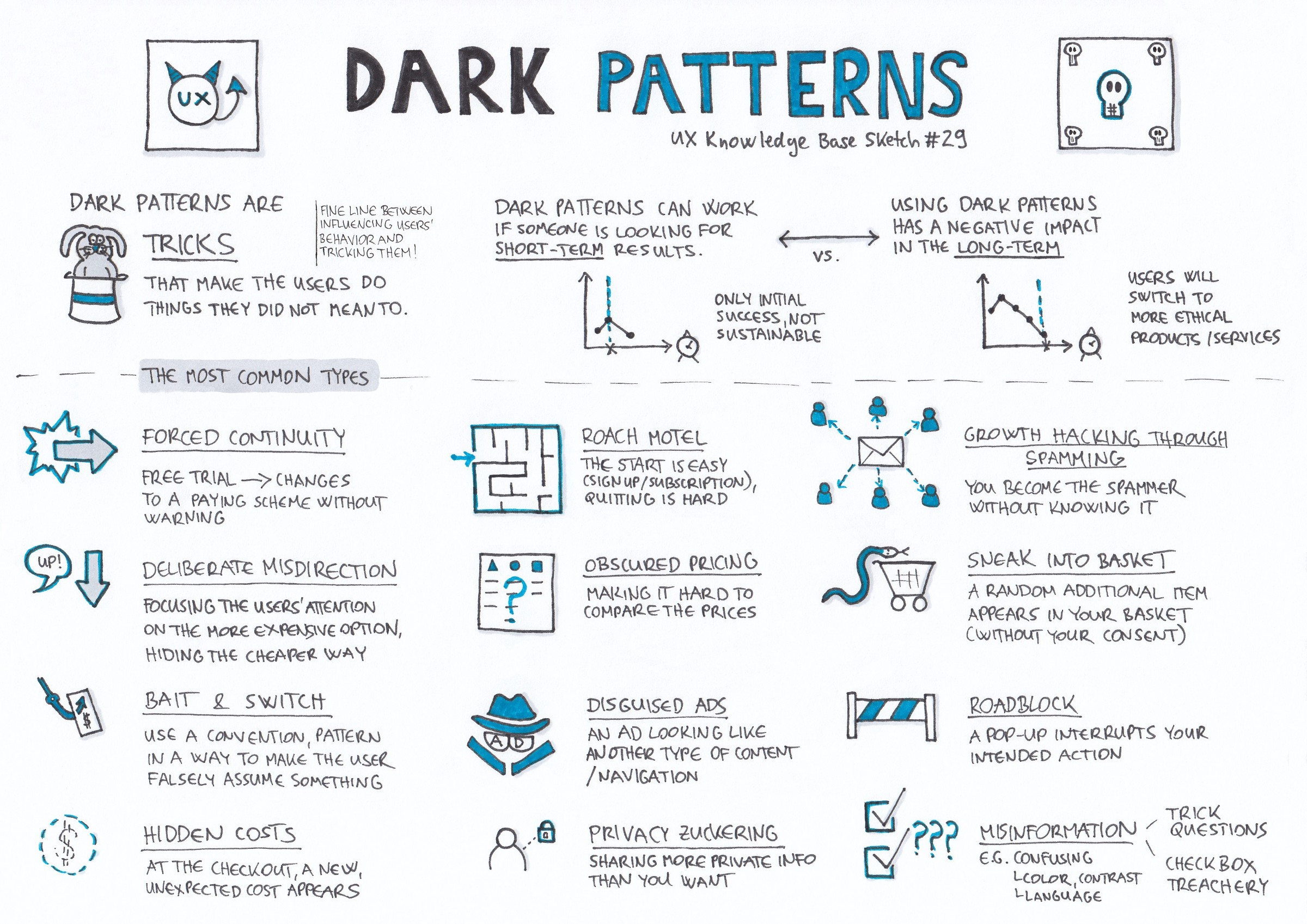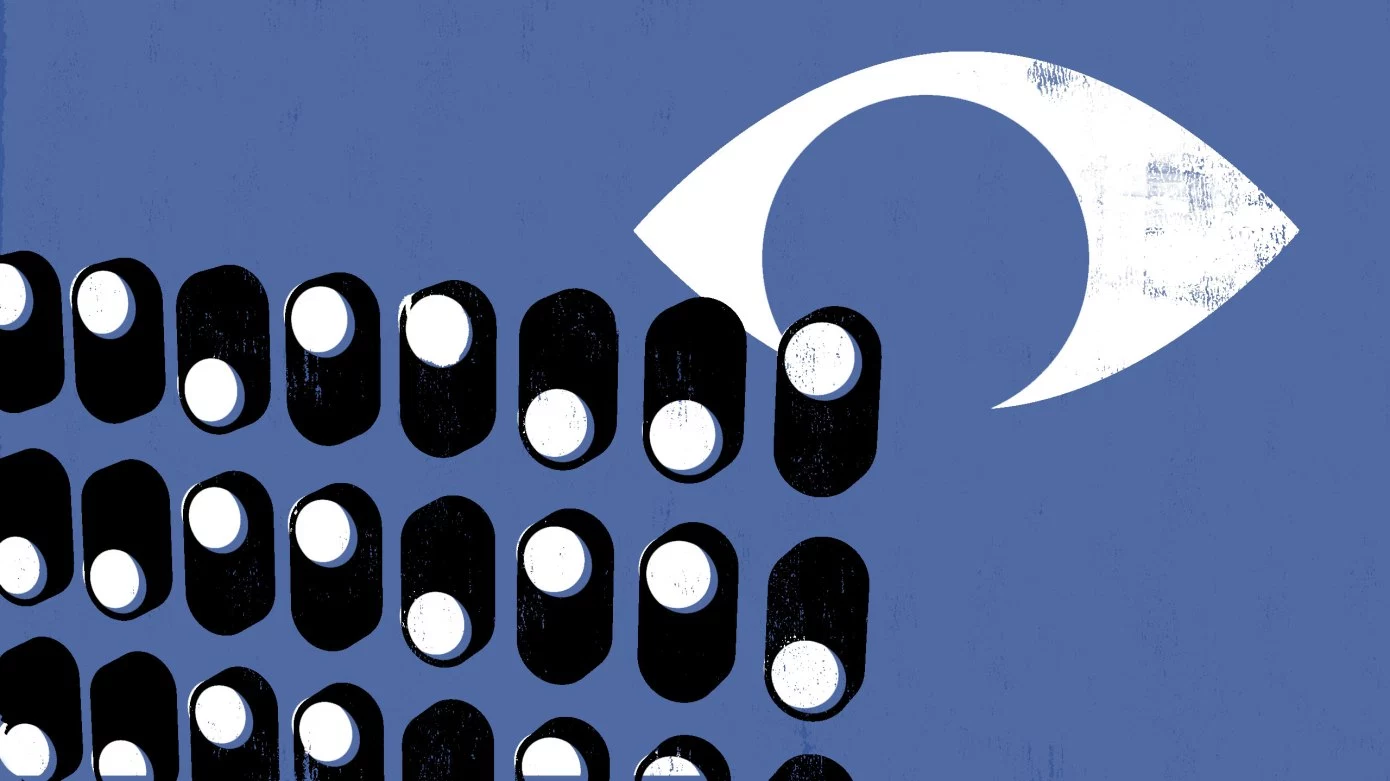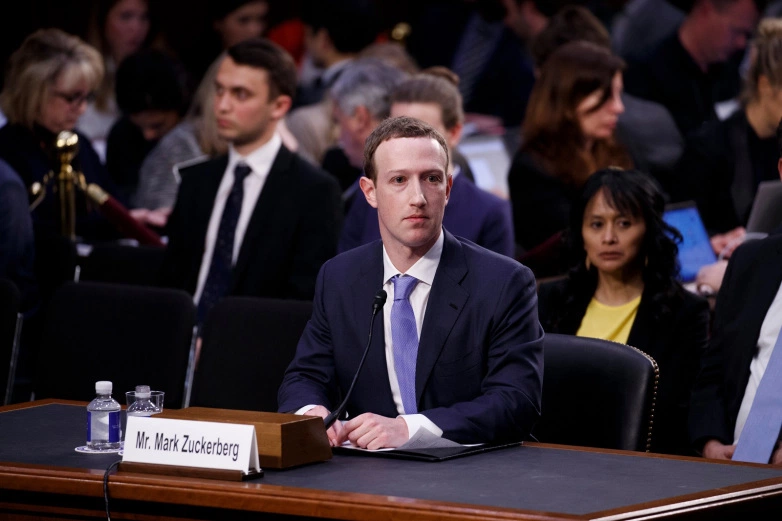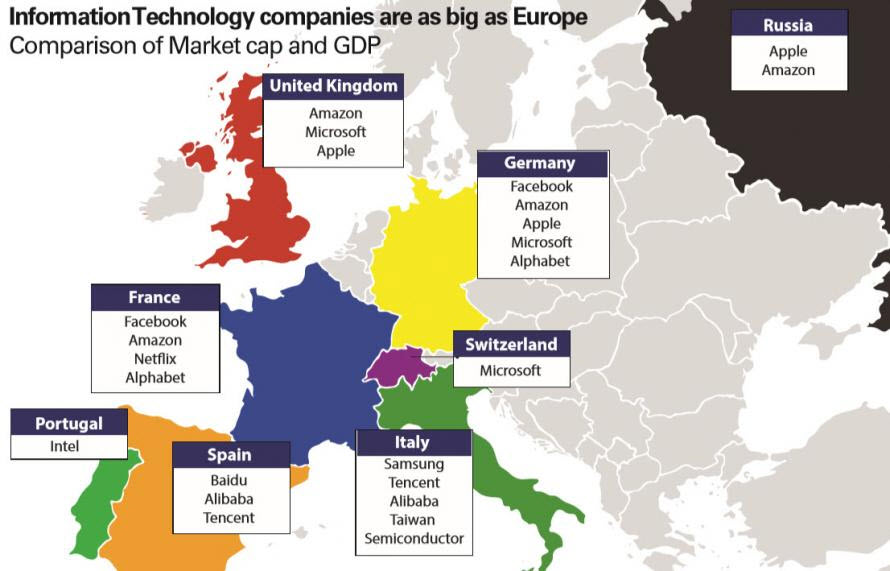“Dark patterns” and the law: how US regulators try to control product mechanics and reduce the influence of tech companies

“Dark Patterns” (dark patterns) are such schemes of user involvement in a product in which a zero-sum game occurs: the product wins and the consumer loses. Simply put, this is an unlawful inference of the user to certain actions.
As a rule, in society, morality and ethics are responsible for resolving such issues, but in technology everything moves so fast that morality and ethics simply do not have time. For example, when Google tried to make its ethics committee on artificial intelligence, it collapsed after only a week. True story .

The reason, in my opinion, is as follows. Technology companies understand the depth of the problem, but, alas, they cannot solve it from the inside. In fact, these are two opposite vectors and intentions: 1) to fulfill their quarterly goals for profit, reach and involvement, and 2) to do well for citizens in the long term.
While the best minds are struggling to solve this problem, the most effective thing that happened is to make products on a business model in which the client pays for the product itself (or someone pays for it: the employer, the sponsor, the daddy). In the advertising model that sells your data, to solve the problem is not easy.
And at this moment regulators take the stage. Their role is to act as a guarantor of civil liberties, morals and basic rules (as well as, on the basis of populist laws, come to power next season). States in this sense are extremely important. The only problem is that they are very slow and extremely non-adaptive: try to create a timely, progressive law. Or cancel the law if you have already adopted it, and suddenly realized that it is not working. (Laws about time zones are not considered.)

It should be said that the appearance in the US Congress of Zuckerberg (Facebook), Pichai (Google) and Dorsey (Twitter) a year ago promoted a lot of interesting movement. Senators began to invent laws that help limit something: the distribution and use of personal information of users, the use of "dark patterns" in interfaces, etc.
A final example: a pair of senators recently proposed limiting mechanics that involve people in the use of products through manipulation. How they will determine what is manipulation and what is not is unclear.
There is a very thin line between cognitive distortions, desires and intentions of different parties. In this regard, it is much easier to use a simple user than the head of a corporation, but everyone has their own cognitive distortions . And this, in many respects, is exactly what makes us humans, and not just breeding biorobots.

Comparison of market capitalization of technology companies and GDP in Europe (2018).
In fact, it is very likely that the old power goes off on how much new technology companies have new power:
- If Facebook were a state, it would be the largest country by the number of citizens (MAU 2.2 billion), one and a half times ahead of China (1.4 billion) and India (1.3 billion). Moreover, if the leaders of de jure democratic countries change every 4-8 years, there are practically no mechanisms for removing the leader in capitalism if he owns a controlling stake.
- Google now knows more about the intentions and desires of people than all pastors, shamans, oracles and priests throughout the existence of world religions. Such power over data is unprecedented in the entire recorded history of mankind.
- Apple makes us do amazing things: pay a super-expensive annual subscription to a thousand-dollar handheld computer, for example. Try to accomplish your goal: it immediately changes the perception of your social status, it wonders the reputation of the innovator, and lowers the interest of the opposite sex. (Just kidding.)
- Up to 40% of the cloud infrastructure on which the Internet runs is owned by Amazon (AWS). The company is the dominant supplier of the planet, and is responsible for bread, information and spectacles.
What's next? Think so:
- The US version of the GDPR is just around the corner.
- Technology companies will undergo a series of antitrust examinations.
- Inside the tech. companies will see discontent with non-humanistic politicians, and employees will try to influence management decisions more.
What do you think about the regulation of food and design patterns by the state?
')
Source: https://habr.com/ru/post/447792/
All Articles